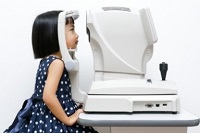Follow-up healthcare for very preterm infants is crucial for their development, but the quality of care differs a lot across Europe. As parents of very preterm born children have experienced first-hand the follow-up care for their children, they can provide impactful ideas for improvements and future policies.
In a Europe-wide study, the authors collected data from medical records and questionnaires that parents had filled out during the first five years of their preterm born child’s life. This study gathered data from 19 regions in 11 countries to get a multinational overview of post-discharge healthcare and parents’ suggestions for improvements. The results showed big differences between countries in the parents’ satisfaction with the provided care. Overall, 14.2% of parents in Europe were not satisfied with the received follow-up care of their preterm born infant. The rates varied between countries from 6.1% in France to 31.6% in Denmark.

©Shutterstock
Finding explanations for these big cross-country differences is difficult. The authors state that the diverse healthcare systems across Europe and differing offers for post-discharge care could be one reason. However, the differences might also be due to individual and social factors, cultural factors and perceptions of what satisfaction means in different countries. Further research on this topic is hence needed.
To find solutions for improvements, the authors collected information through free-text answers, which were grouped into four main themes with 25 sub-themes. Even though the satisfaction rates varied greatly between countries, the suggestions for improvements were largely similar and even parents who rated the follow-up care as good gave some negative feedback. The suggestions focused mainly on the lack of communication (like communication with healthcare-providers and parent support) and organisational deficits (like coordination of follow-up care, access to services and timing of care).
Additionally, parents showed higher rates of dissatisfaction when their children were in need of complex multidisciplinary care due to severe health or developmental issues (e.g. cerebral palsy (34.4%) or epilepsy (36.9%)). An explanation for this might be the need for more treatment and therefore extensive interaction, which can make communication problems more evident.
In conclusion, the authors express that parents can be a helpful resource for revealing needed policy changes in follow-up care. The involved parents in this study made clear that organisation and communication in post-discharge care must be improved, especially concerning multidisciplinary care. This can significantly affect the health and developmental outcomes of preterm born children and is therefore of utmost importance.
This study was part of the SHIPS research project. EFCNI was a project partner and involved regarding parental involvement and outreach.
Paper available to view at: Nature
Full list of authors: Anna-Veera Seppänen, Priscille Sauvegrain, Elizabeth S. Draper, Liis Toome, Rym El Rafei, Stavros Petrou, Henrique Barros, Luc J. I. Zimmermann, Marina Cuttini, Jennifer Zeitlin and the SHIPS Research group
DOI: 10.1038/s41390-020-01120-y

